Ulrich Furbach
Modeling Associative Reasoning Processes
Jan 07, 2022



Abstract:The human capability to reason about one domain by using knowledge of other domains has been researched for more than 50 years, but models that are formally sound and predict cognitive process are sparse. We propose a formally sound method that models associative reasoning by adapting logical reasoning mechanisms. In particular it is shown that the combination with large commensense knowledge within a single reasoning system demands for an efficient and powerful association technique. This approach is also used for modelling mind-wandering and the Remote Associates Test (RAT) for testing creativity. In a general discussion we show implications of the model for a broad variety of cognitive phenomena including consciousness.
Künstliche Intelligenz, quo vadis?
Apr 21, 2021Abstract:This paper outlines the state of the art in AI. It then describes basic machine learning and knowledge processing techniques. Based on this, some possibilities and limitations of future AI developments are discussed.
Consciousness and Automated Reasoning
Jan 26, 2020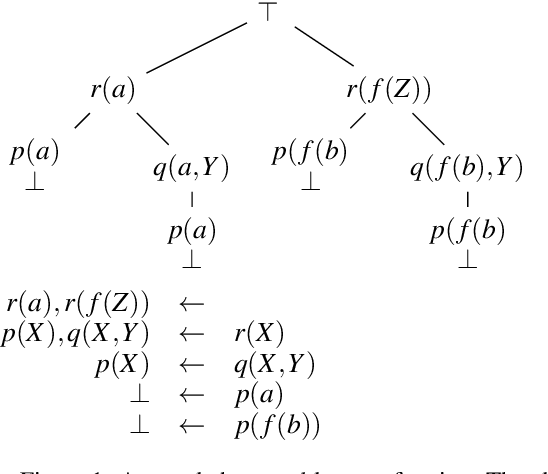
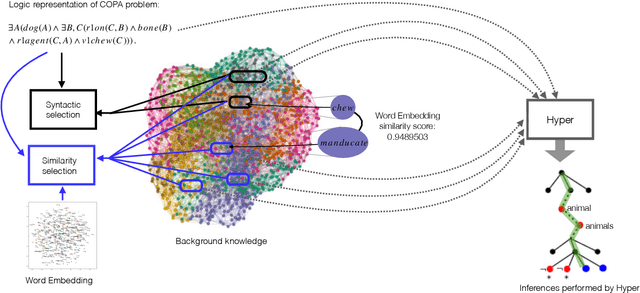
Abstract:This paper aims at demonstrating how a first-order logic reasoning system in combination with a large knowledge base can be understood as an artificial consciousness system. For this we review some aspects from the area of philosophy of mind and in particular Baars' Global Workspace Theory. This will be applied to the reasoning system Hyper with ConceptNet as a knowledge base. Finally we demonstrate that such a system is very well able to do conscious mind wandering.
Relating Strong Spatial Cognition to Symbolic Problem Solving --- An Example
Jun 14, 2016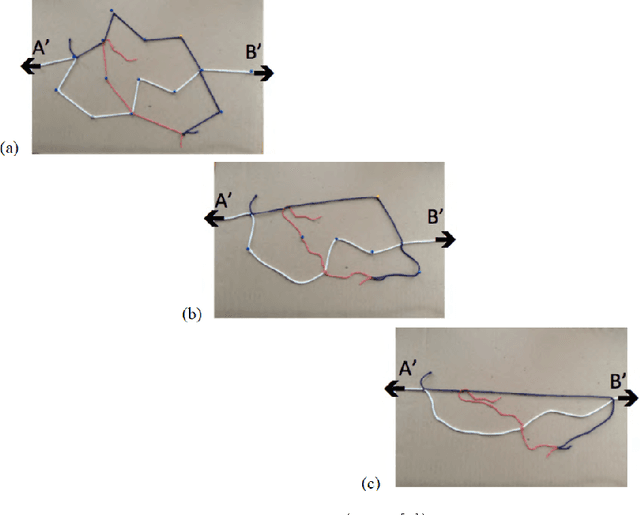

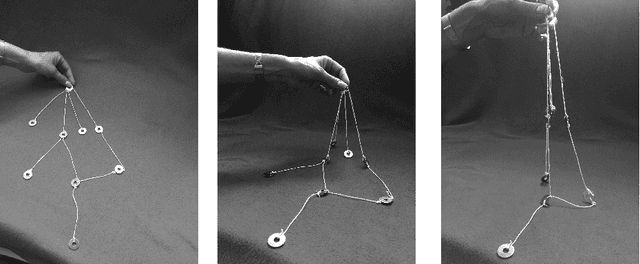
Abstract:In this note, we discuss and analyse a shortest path finding approach using strong spatial cognition. It is compared with a symbolic graph-based algorithm and it is shown that both approaches are similar with respect to structure and complexity. Nevertheless, the strong spatial cognition solution is easy to understand and even pops up immediately when one has to solve the problem.
On First-Order Model-Based Reasoning
Jul 31, 2015
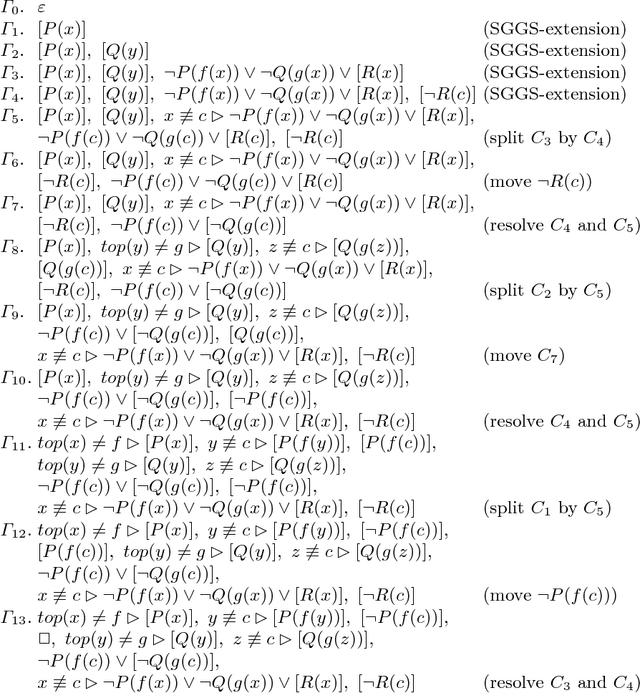
Abstract:Reasoning semantically in first-order logic is notoriously a challenge. This paper surveys a selection of semantically-guided or model-based methods that aim at meeting aspects of this challenge. For first-order logic we touch upon resolution-based methods, tableaux-based methods, DPLL-inspired methods, and we give a preview of a new method called SGGS, for Semantically-Guided Goal-Sensitive reasoning. For first-order theories we highlight hierarchical and locality-based methods, concluding with the recent Model-Constructing satisfiability calculus.
The RatioLog Project: Rational Extensions of Logical Reasoning
Jul 30, 2015


Abstract:Higher-level cognition includes logical reasoning and the ability of question answering with common sense. The RatioLog project addresses the problem of rational reasoning in deep question answering by methods from automated deduction and cognitive computing. In a first phase, we combine techniques from information retrieval and machine learning to find appropriate answer candidates from the huge amount of text in the German version of the free encyclopedia "Wikipedia". In a second phase, an automated theorem prover tries to verify the answer candidates on the basis of their logical representations. In a third phase - because the knowledge may be incomplete and inconsistent -, we consider extensions of logical reasoning to improve the results. In this context, we work toward the application of techniques from human reasoning: We employ defeasible reasoning to compare the answers w.r.t. specificity, deontic logic, normative reasoning, and model construction. Moreover, we use integrated case-based reasoning and machine learning techniques on the basis of the semantic structure of the questions and answer candidates to learn giving the right answers.
* 7 pages, 3 figures
Automated Reasoning for Robot Ethics
Feb 20, 2015Abstract:Deontic logic is a very well researched branch of mathematical logic and philosophy. Various kinds of deontic logics are considered for different application domains like argumentation theory, legal reasoning, and acts in multi-agent systems. In this paper, we show how standard deontic logic can be used to model ethical codes for multi-agent systems. Furthermore we show how Hyper, a high performance theorem prover, can be used to prove properties of these ethical codes.
Cognitive Systems and Question Answering
Nov 18, 2014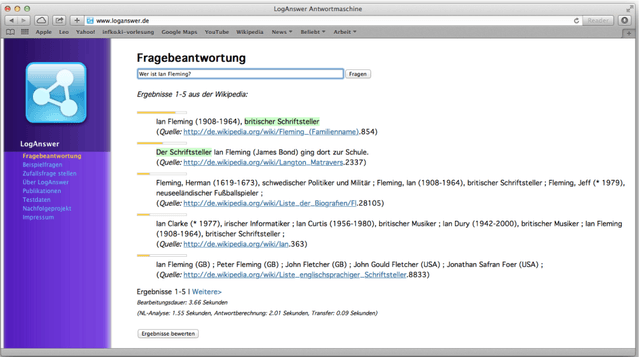
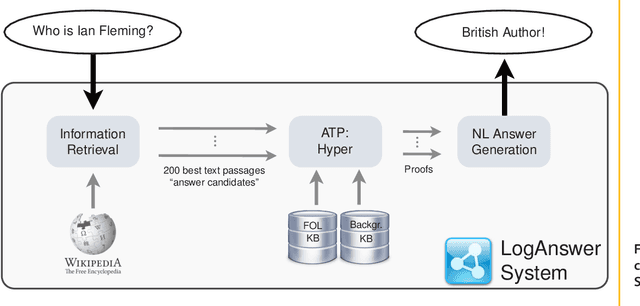
Abstract:This paper briefly characterizes the field of cognitive computing. As an exemplification, the field of natural language question answering is introduced together with its specific challenges. A possibility to master these challenges is illustrated by a detailed presentation of the LogAnswer system, which is a successful representative of the field of natural language question answering.
Automated Reasoning in Deontic Logic
Nov 18, 2014

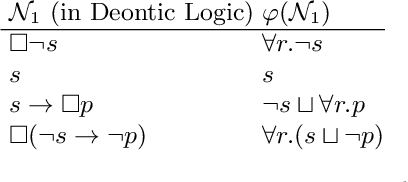

Abstract:Deontic logic is a very well researched branch of mathematical logic and philosophy. Various kinds of deontic logics are discussed for different application domains like argumentation theory, legal reasoning, and acts in multi-agent systems. In this paper, we show how standard deontic logic can be stepwise transformed into description logic and DL- clauses, such that it can be processed by Hyper, a high performance theorem prover which uses a hypertableau calculus. Two use cases, one from multi-agent research and one from the development of normative system are investigated.
Deontic Logic for Human Reasoning
Sep 18, 2014



Abstract:Deontic logic is shown to be applicable for modelling human reasoning. For this the Wason selection task and the suppression task are discussed in detail. Different versions of modelling norms with deontic logic are introduced and in the case of the Wason selection task it is demonstrated how differences in the performance of humans in the abstract and in the social contract case can be explained. Furthermore it is shown that an automated theorem prover can be used as a reasoning tool for deontic logic.
 Add to Chrome
Add to Chrome Add to Firefox
Add to Firefox Add to Edge
Add to Edge